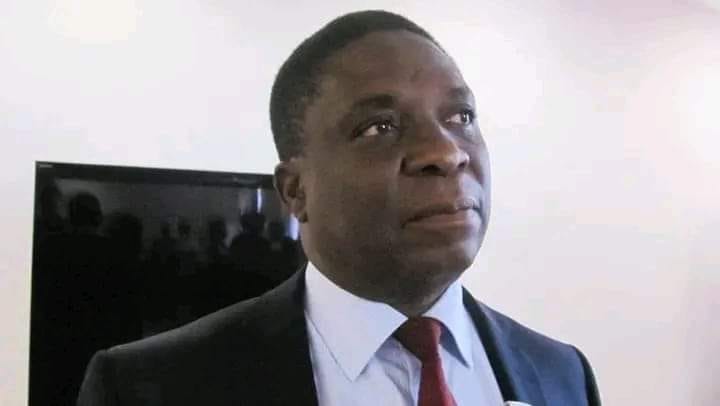Kalua Released on Bail; Son Challenges Cybercrime Charges' Validity
The State's reported unreadiness to proceed to trial immediately has only fueled further speculation about the motivations behind the arrests.
LILONGWE, Malawi — Kamlepo Kalua, a Malawian lawmaker, was freed on police bail Monday after his arrest on cybercrime charges, while his son Penjani publicly challenged the accusations' legitimacy, vowing to prove his father's innocence in court, writes Winston Mwale.
Kalua's release followed negotiations with police officials at Area 30 headquarters, his attorney Lusungu Gondwe confirmed.
The charges were deemed bailable, but the case continues to stir controversy in Malawi's political circles.
Kalua’s son Penjani, known as Fredokiss in the music circles, took to Facebook to address the situation, stating, "We appreciate the bail granted by the police. However, as a family, we are committed to taking this matter to court to ensure the truth is revealed to everyone."
The family contends that Kalua is not the person in a voice note central to the cybercrime allegations, despite police claims.
They are pushing for a trial, expressing confidence in Malawi's judicial system.
"We have faith in our judicial system and hope the police can prove beyond a reasonable doubt that it is Hon KK in the voice note," Penjani asserted.
Meanwhile, activist Bon Kalindo remains in custody on similar charges, his lawyer, Khwima Mchizi, said.
The arrests stem from alleged voice notes related to a recent plane crash that killed nine people, according to authorities.
The Human Rights Defenders Coalition (HRDC) has condemned the arrests, describing them as "a setback in the pursuit of a more democratic society."
HRDC Chairperson Gift Trapence expressed concern over President Lazarus Chakwera's silence on the matter.
"We urge President Chakwera to honor his commitment," Trapence said, referencing Chakwera's past promises to protect free speech when he was in opposition.
"The state must enforce laws objectively and fairly. Arrests should not be tools to silence dissent or intimidate differing views."
The HRDC warned that the arrests send a troubling message about the state of free speech in Malawi.
"What is happening now is sending a message that daring to speak one's mind in the current government can land you in trouble," Trapence said, describing it as "a troubling truth that Malawi's democracy is under a threat."
As the legal drama unfolds, observers note that the outcome could have significant implications for freedom of expression and the role of digital communications in Malawi's political landscape.
The State's reported unreadiness to proceed to trial immediately has only fueled further speculation about the motivations behind the arrests.
"Always remember the police, army and judiciary belong to all of us," Fedokiss reminded his followers, echoing growing calls for transparency and equal application of the law in Malawi.
The case continues to highlight tensions between political figures, activists, and law enforcement in the country's evolving democratic landscape, with many awaiting the government's next move in this high-profile dispute.





